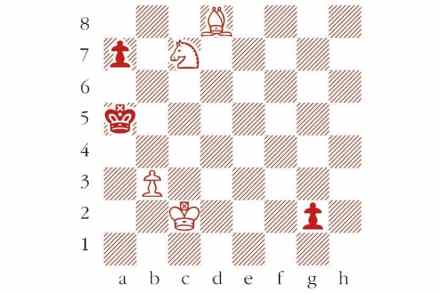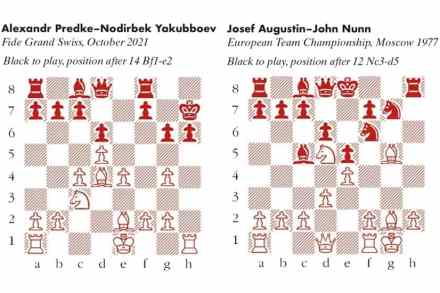No. 680
White to play and win. The conclusion of an endgame study by Henri Rinck. The imminent promotion of the g-pawn makes White’s situation look desperate, but there is one way to win the game. What is White’s winning move? Email answers to chess@spectator.co.uk by Monday 22 November. There is a prize of £20 for the first correct answer out of a hat. Please include a postal address. Last week’s solution 1 Qxf6+! Kxf6 2 Rxh7 Rxc1+ 3 Nxc1 and Black cannot prevent both Rxf7# and Ng4# Last week’s winner Willie Dong, Santa Cruz, California





















